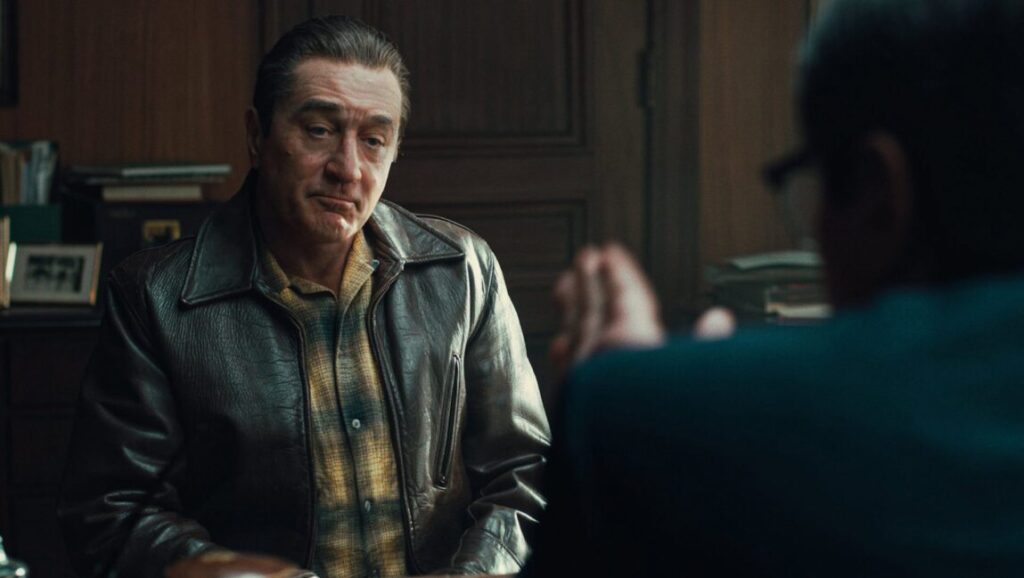The Irishman tells the probably-not-entirely-true story of Robert DeNiro’s Frank Sheeran, using cutting-edge visual effects technology to place him inside some of the most important events in American history, right next to a lot of famous people, many of whom wind up dead. It’s almost like Martin Scorsese’s Forrest Gump. Sheeran goes from WW2 vet to workaday truck driver to Teamster leader/mafia hitman over the course of decades, living every inch a life as full of variety as any box of chocolates, but Scorsese’s cruel and crucial twist is that once you finish the box — and you will, there’s no way around it — you’re left with nothing. It’s a gangster film reconstructed as a bildungsroman.
As such it’s a quieter film than Scorsese’s other high-profile crime pictures. Sure, it’s full of voice-over, loaded with quick narrative digressions and non-sequitur cutaways, and of course there’s plenty of violence, but The Irishman is a more apparently contemplative work, signaled not merely by a tremendous running time (roughly 3 1/2 hours) but long scenes of deliberation by the characters as they strategize an illegal act or rationalize their way out of a moral corner. The whip pans, iris-outs, staccato cutting, and so forth that we’ve become used to from Scorsese aren’t here in abundance.
It’s almost like Martin Scorsese’s Forrest Gump.
Much has been made of the digital de-aging done not just to DeNiro but Joe Pesci, Al Pacino, and a few others to allow the actors to play their characters throughout their entire lives. The illusion isn’t always a convincing one, particularly in the characters’ earliest days, mostly because these 70- or 80-year-old men simply don’t move or sound or stand like they must once have. But eventually you get used to the slightly strange ways a lip moves or a forehead fails to wrinkle, and what’s more these practiced performances from old masters underneath a tech-enabled mask of youth lends the entire enterprise a simultaneous coat of irony and melancholy. If they knew then what they know now.
It’s probably only slightly a coincidence that Jo Hoffa, wife to Pacino’s Jimmy, is played by actress Welker White, who famously portrayed Lois the babysitter in Scorsese’s beloved Goodfellas. Lois wouldn’t fly without her lucky hat, and she makes a phone call that helps to cost Henry Hill everything. Here she’s the recipient of a terrible phone call that she doesn’t know is from her husband’s murderer. But it’s hard not to sense the echo, the idea that it doesn’t matter how lucky your hat is, everyone’s plane’s eventually going down one way or another.


Comments are closed.